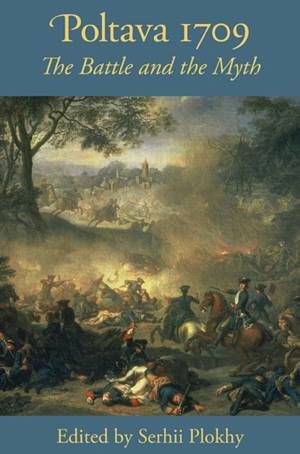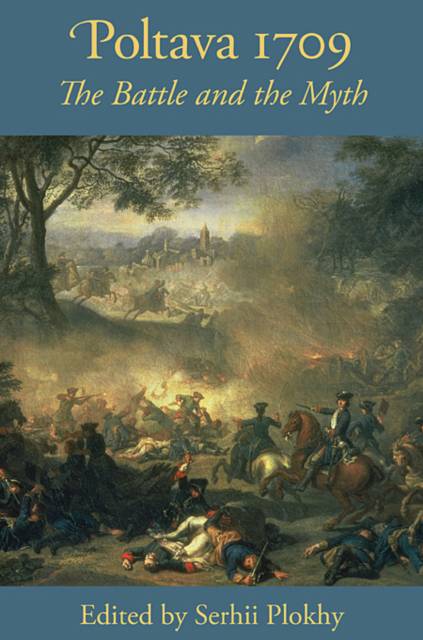
Door een staking bij bpost kan je online bestelling op dit moment iets langer onderweg zijn dan voorzien. Dringend iets nodig? Onze winkels ontvangen jou met open armen!
- Afhalen na 1 uur in een winkel met voorraad
- Gratis thuislevering in België vanaf € 30
- Ruim aanbod met 7 miljoen producten
Door een staking bij bpost kan je online bestelling op dit moment iets langer onderweg zijn dan voorzien. Dringend iets nodig? Onze winkels ontvangen jou met open armen!
- Afhalen na 1 uur in een winkel met voorraad
- Gratis thuislevering in België vanaf € 30
- Ruim aanbod met 7 miljoen producten
Zoeken
Poltava 1709
The Battle and the Myth
Serhii Plokhy, Kristian Gerner, George G. Grabowicz, Alexander Kamenskii, Alexander Kiebuzinski
Paperback | Engels
€ 37,95
+ 75 punten
Omschrijving
The Battle of Poltava has long been recognized as a crucial event in the geopolitical history of Europe and a decisive point in the Great Northern War between Sweden and the Russian Empire. The Russian victory at Poltava contributed to the decline of Sweden as a Great Power and was a major setback to Ukrainian independence. Hetman Ivan Mazepa, who joined forces with the Swedish king Charles XII against Tsar Peter I, remains a controversial figure even today.
In 2009, the Harvard Ukrainian Research Institute gathered scholars from around the globe and from many fields of study--history, military affairs, philology, linguistics, literature, art history, music--to mark the 300th anniversary of the battle. This book is a collection of their papers on such topics as the international, Russian, and Ukrainian contexts of the battle; Mazepa in European culture; the language and literature of the period; art and architecture; history and memory; and fact, fiction, and the literary imagination. Mazepa himself is the focus of many of the articles--a hero to Ukrainians but a treacherous figure to Russians. This book provides a fresh look at this watershed event and sheds new light on the legacies of the battle's major players.Specificaties
Betrokkenen
- Auteur(s):
- Uitgeverij:
Inhoud
- Aantal bladzijden:
- 722
- Taal:
- Engels
Eigenschappen
- Productcode (EAN):
- 9781932650099
- Verschijningsdatum:
- 17/12/2012
- Uitvoering:
- Paperback
- Formaat:
- Trade paperback (VS)
- Afmetingen:
- 152 mm x 229 mm
- Gewicht:
- 997 g

Alleen bij Standaard Boekhandel
+ 75 punten op je klantenkaart van Standaard Boekhandel
Beoordelingen
We publiceren alleen reviews die voldoen aan de voorwaarden voor reviews. Bekijk onze voorwaarden voor reviews.











